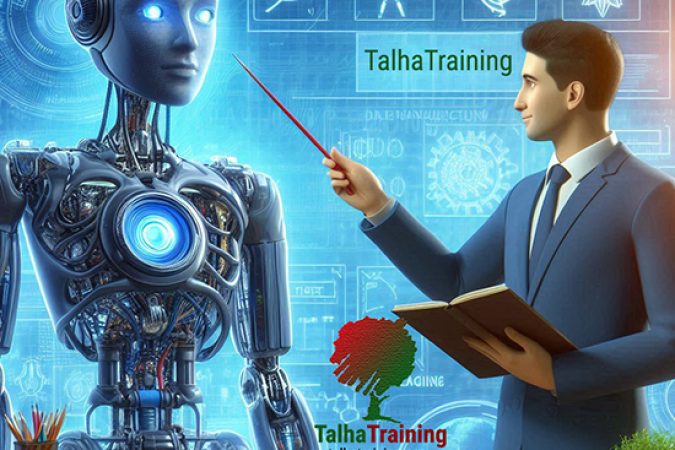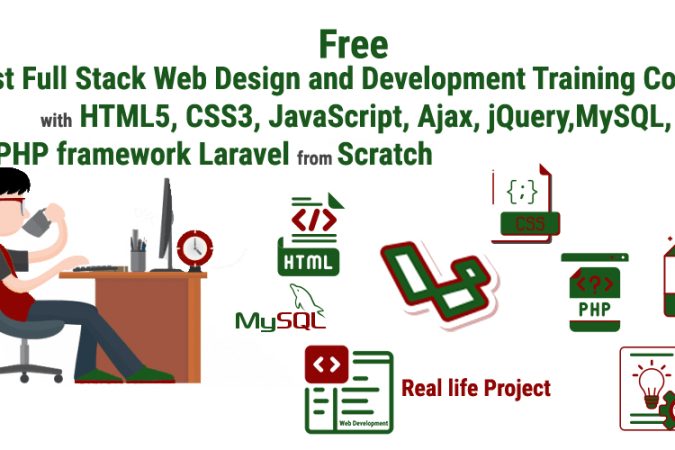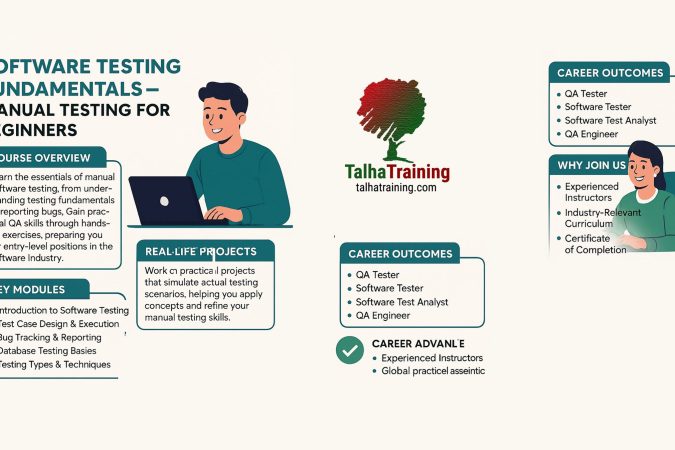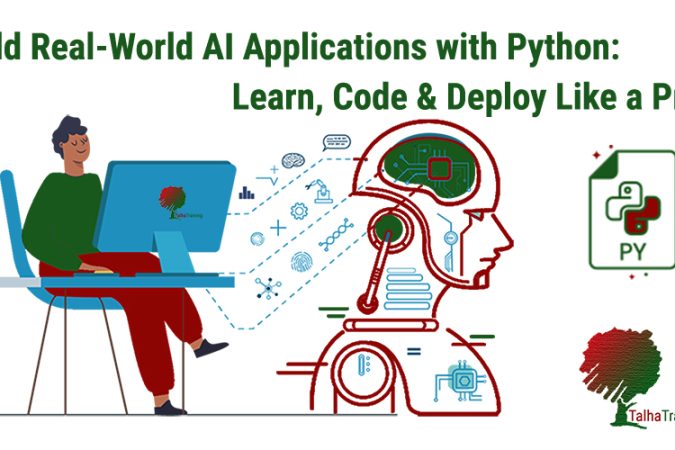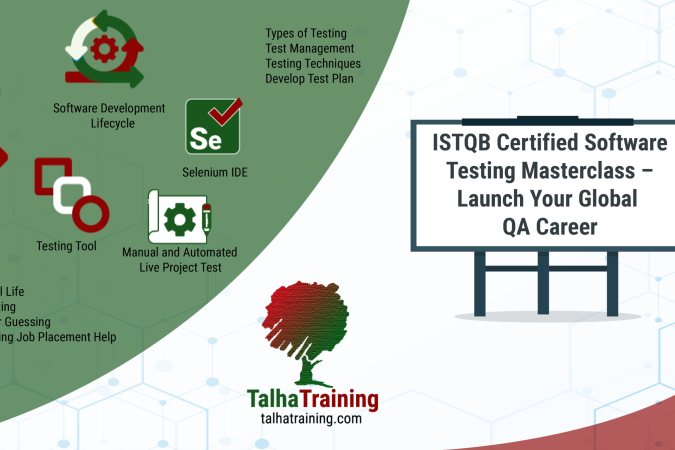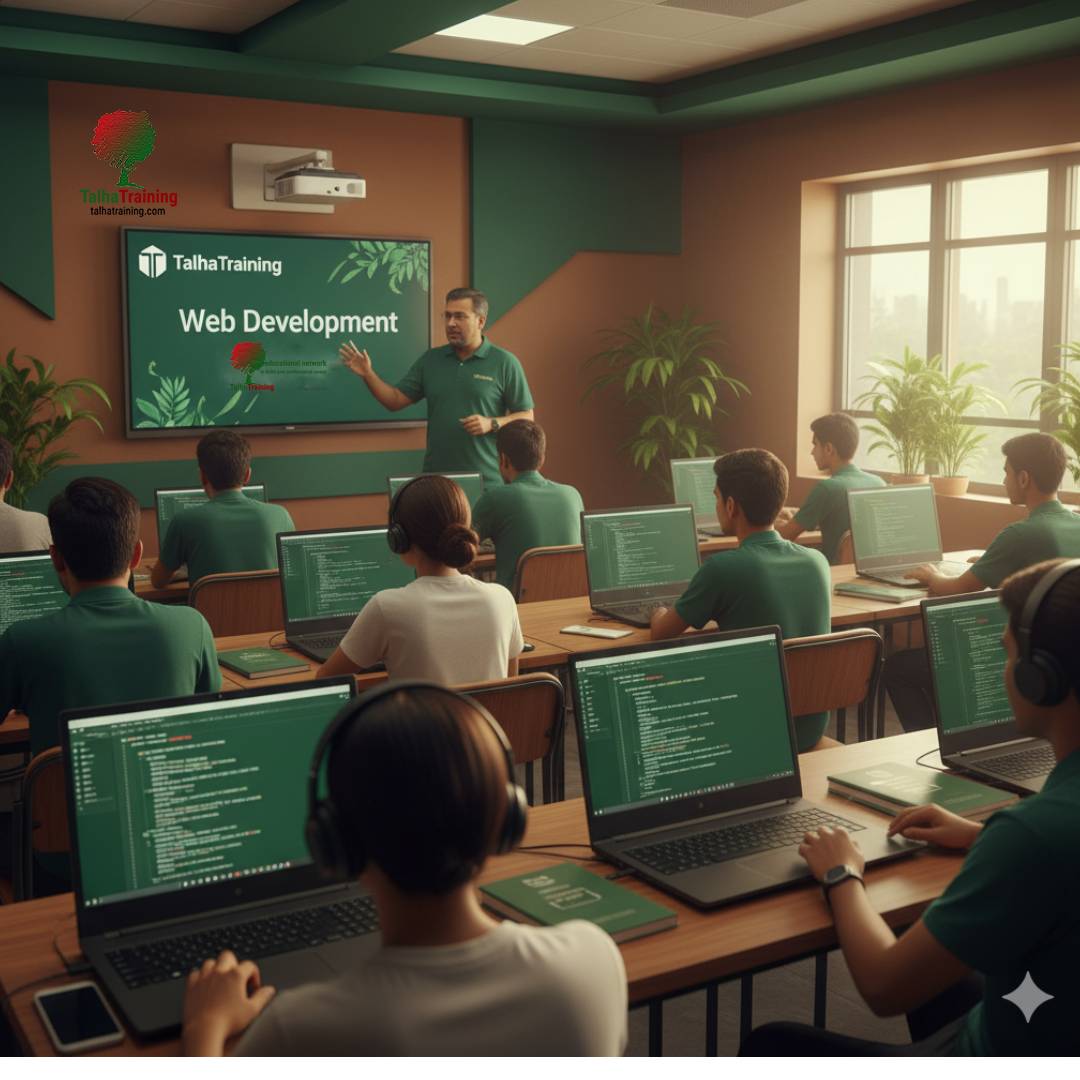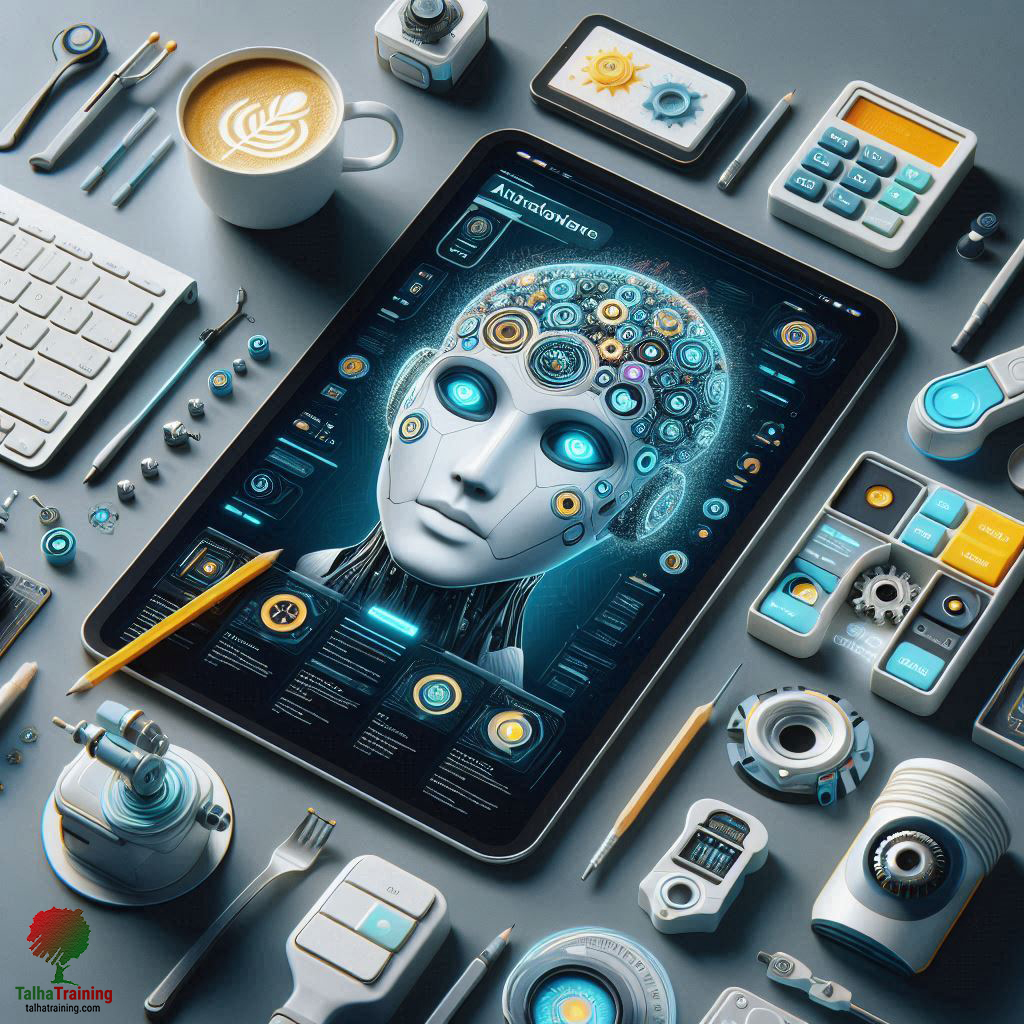Explore. Learn. Skill Up. Share. Get Hired!
From Curiosity to Career — Explore, Learn, Skill Up, Share, and Get Hired!

Courses Popular
AI এর মতো চিন্তা করুন: স্মার্ট ফলাফলের জন্য প্রম্পট ইঞ্জিনিয়ারিং শিখুন প্রম্পট ইঞ্জিনিয়ারিং কী? প্রম্পট ইঞ্জিনিয়ারিং হল সেই গোপন চাবিকাঠি যা দিয়ে আপনি কৃত্রিম বুদ্ধিমত্তার (AI) পূর্ণ শক্তিকে উন্মোচন করতে...
-
0 Lessons
৳ 6,500.00৳ 2,999.00
বিনামূল্যে ওয়েব ডেভেলপমেন্ট বাংলা ভিডিও কোর্স – লারাভেল, এইচটিএমএল, সিএসেস, জাভাস্কিরপ্ট, এজ্যাক্স, পিএইচপি, এবং মাইএসকিউএল দিয়ে বেসিক থেকে লাইভ প্রজেক্ট ডেভেলপমেন্ট বিনামূল্যে ওয়েব ডেভেলপমেন্ট বাংলা ভিডিও কোর্স Laravel, HTML,...
-
26 Lessons
Free
Software Testing Fundamentals – Manual Testing for Beginners 🌟 Launch Your IT Career with Hands-On QA Skills & Global Job Opportunities! 🌍 🚀 Course Overview: Your Gateway to a QA...
-
0 Lessons
৳ 9,900.00৳ 8,500.00
Build Real-World AI Applications with Python: Learn, Code & Deploy Like a Pro! What is Artificial Intelligence (AI)? Artificial Intelligence (AI) is like giving superpowers to machines. It enables computers...
-
0 Lessons
৳ 79,500.00৳ 65,500.00
Categories Top Learning
-
 Artificial Intelligence and Machine Learning
Artificial Intelligence and Machine Learning4 Courses
-
Coding for Kids
2 Courses
-
 Data Science and AI
Data Science and AI1 Courses
-
 SQA and Testing
SQA and Testing6 Courses
-
 Web Development
Web Development10 Courses
-
 এসকিউএ এবং টেস্টিং
এসকিউএ এবং টেস্টিং7 Courses
-
 ওয়েব ডেভেলপমেন্ট
ওয়েব ডেভেলপমেন্ট5 Courses
-
 কৃত্রিম বুদ্ধিমত্তা (AI) ও মেশিন লার্নিং (ML)
কৃত্রিম বুদ্ধিমত্তা (AI) ও মেশিন লার্নিং (ML)4 Courses
-
 ডেটা সায়েন্স এবং এআই
ডেটা সায়েন্স এবং এআই2 Courses
Exciting New Courses! Just Launched:
Become a Certified QA Tester for the Global Job Market 🌍💼 Are you ready to build a global career in software testing? Our ISTQB Foundation Level Certification Training Program is...
-
0 Lessons
৳ 55,500.00
🌍💼 Become a Certified QA Tester for the Global Job Market – গ্লোবাল QA ক্যারিয়ার শুরু করুন আজই! আপনি কি তৈরি আছেন সফটওয়্যার টেস্টিং শিখে বিশ্বের যেকোনো জায়গায় কাজ করার...
-
0 Lessons
৳ 64,900.00৳ 55,500.00
Software Testing Fundamentals – Manual Testing for Beginners 🌟 Launch Your IT Career with Hands-On QA Skills & Global Job Opportunities! 🌍 🚀 Course Overview: Your Gateway to a QA...
-
0 Lessons
৳ 9,900.00৳ 8,500.00
What Makes TalhaTraining Courses Stand Out?
Learn from Industry Experts
Get guidance from professionals with real-world experience.
Learn Your Way
Learn anytime, anywhere — at your own pace.
Hands-On Practice
Work on practical projects to build confidence and skill.
From Practice to Mastery.
Questions That Teach, Quizzes That Challenge, Courses That Transform.
Job-Focused Courses
Courses designed to match today’s job market demands.
Certification That Matters
arn credentials to showcase your expertise to employers.
News Latest
এইচটিএমএল ফাইভ ভূমিকা (HTML5 Introduction) এইচটিএমএল কী? HTML (HyperText Markup Language) হলো ওয়েব পেইজ তৈরি করার জন্য ব্যবহৃত একটি মার্কআপ...
-
-
September 13, 2025
আপনার প্রিয় প্রোগ্রামিং ল্যাংগুয়েজবিষয়ে একটি উত্তর দেওয়ার সময়, আপনি সেই ল্যাংগুয়েজ এর যে যে বৈশিষ্ট্য বা সুবিধাগুলি পছন্দ করেন, সেগুলি...
-
-
July 28, 2025
আজকের প্রযুক্তির জগতে কৃত্রিম বুদ্ধিমত্তা (AI), মেশিন লার্নিং (ML) এবং ডিপ লার্নিং (DL) এর নাম প্রায়ই শোনা যায়। কিন্তু এদের...
-
-
July 23, 2025

Become One Of 1000+
Eduma’s Instructors
Become an instructor and change lives — including your own

